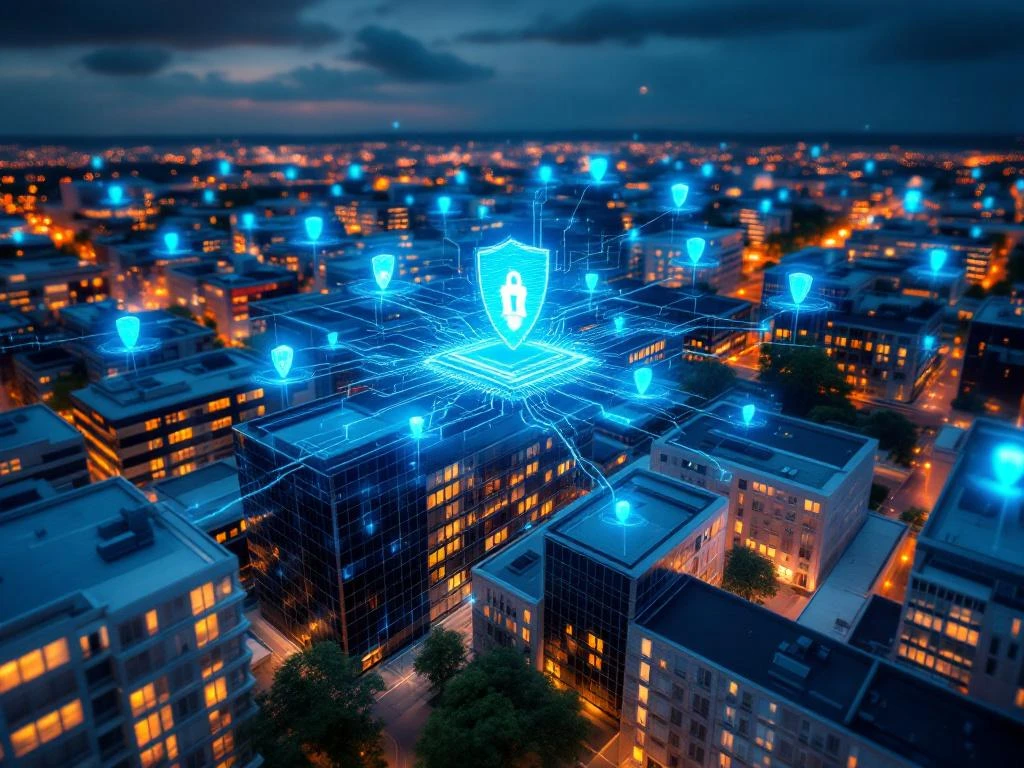

-
UK: +44 203 8876 770
US: 315 508 6500 - cybersecurity@thisisiceberg.com
-
8 Devonshire Square, London, EC2M 4YJ

For cybersecurity hiring managers, technical abilities represent just one piece of the puzzle. Today’s security professionals need a balanced skillset that includes crucial interpersonal capabilities like clear communication, robust problem-solving, adaptability, and teamwork. At Iceberg, we’ve seen firsthand how these non-technical attributes often determine whether a security hire will truly excel in protecting organizations against evolving threats.
While technical expertise remains foundational in cybersecurity roles, several interpersonal abilities have proven equally critical for long-term success. Communication skills enable security professionals to translate complex threats into actionable insights for non-technical stakeholders. Problem-solving abilities allow them to approach novel threats creatively and methodically. Adaptability ensures they can evolve alongside the rapidly changing threat landscape.
Additionally, teamwork facilitates collaborative security responses during incidents. Critical thinking helps security professionals evaluate potential vulnerabilities objectively and prioritize effectively. Emotional intelligence allows them to manage stress during security emergencies and navigate organizational politics when implementing necessary changes.
These capabilities complement technical knowledge, creating security professionals who not only understand threats but can effectively advocate for and implement protective measures across organizations.
Communication stands as perhaps the most undervalued yet crucial capability in the security field. Effective security communication bridges the gap between technical specialists and business leadership. When breaches occur, security professionals must explain complex technical concepts to executives making time-sensitive decisions without using jargon that obscures understanding.
Documentation skills also prove essential. Incident reports must be comprehensive yet clear, providing both technical details for remediation teams and strategic insights for leadership. This written communication creates the foundation for organizational learning after security events.
Furthermore, security recommendations often require cross-departmental buy-in. Professionals who can articulate security needs in terms of business value rather than technical specifications gain greater implementation success. At Iceberg, we’ve observed that candidates with presentation skills who can confidently deliver security briefings typically advance faster in their careers and drive greater organizational change.
The cybersecurity landscape constantly evolves with novel attack vectors emerging regularly. Creative problem-solving allows security professionals to anticipate threats before they materialize and develop innovative defenses rather than relying solely on established playbooks.
Analytical reasoning plays an equally important role during incident investigation. Security professionals must reconstruct attack patterns from limited evidence, identifying both the attack methodology and potential vulnerabilities exploited. This forensic mindset requires connecting disparate data points to form coherent attack narratives.
Perhaps most critically, security emergencies demand rapid decision-making under pressure. Professionals must evaluate response options quickly, considering both immediate threat containment and potential business disruption. Those who can maintain clear thinking during crises while methodically working through complex problems provide immense value to their organizations.
When placing cybersecurity talent, we’ve found these problem-solving qualities often differentiate candidates with similar technical credentials, especially in competitive cybersecurity hiring environments.
Security operations centers and incident response teams function as coordinated units rather than collections of individual contributors. Collaborative mindsets enable security professionals to share information efficiently, avoiding knowledge silos that create defensive blind spots.
Conflict resolution abilities prove particularly valuable when security requirements clash with business objectives. Professionals who can negotiate compromises while maintaining essential security controls help organizations balance protection with operational needs.
Empathy allows security team members to understand the challenges faced by end-users and other departments, leading to security solutions that account for human factors rather than creating unworkable restrictions. Leadership qualities become important as security professionals advance, with those able to inspire and coordinate teams typically achieving greater collective outcomes.
The most effective security professionals we place demonstrate a balance between autonomous work and team coordination, knowing when to handle issues independently versus when to leverage collective expertise.
In few fields does adaptability matter more than in cybersecurity, where threat landscapes transform rapidly and continuously. Learning agility enables security professionals to quickly master new tools, techniques, and attack methodologies without extensive formal training.
Comfort with ambiguity proves essential since security professionals often work with incomplete information during incidents, making decisions despite uncertainty. Resilience helps them recover from security setbacks and maintain effectiveness during extended incident response periods.
Flexibility in approaching security challenges allows professionals to adjust their strategies based on organizational context rather than applying rigid frameworks inappropriately. As we’ve helped organizations build security teams across 23 countries, we’ve observed that adaptable candidates consistently outperform those with deeper technical knowledge but fixed mindsets.
This adaptability extends to organizational changes as well, with the most valuable security professionals able to adjust to evolving business priorities while maintaining appropriate security postures.
Hi! I see you're interested in cybersecurity soft skills for hiring. Many hiring managers struggle to balance technical expertise with the interpersonal abilities that truly make security professionals successful. Which best describes your current situation?
Organizations face a critical choice when prioritizing candidates: select for existing soft skills or develop these capabilities internally. The optimal approach typically combines both strategies, recognizing that some foundational soft skills can be enhanced while others prove more difficult to develop.
Mentoring programs pairing junior security staff with communicatively skilled senior professionals can effectively transfer interpersonal capabilities. Structured training addressing specific soft skills like presentation delivery or technical writing can yield significant improvements.
Creating environments that nurture skill growth produces long-term benefits. Security teams that regularly practice explaining technical concepts to non-technical audiences naturally improve their communication abilities. Similarly, collaborative problem-solving exercises enhance both teamwork and analytical thinking.
At Iceberg, we help organizations identify candidates with both technical proficiency and developmental potential, recognizing that the cybersecurity talent shortage requires balancing immediate capabilities with growth mindsets.
Assessing soft skills requires different approaches than evaluating technical abilities. Behavioral interviewing remains the foundation, with questions exploring how candidates handled past security incidents, communicated complex threats, or collaborated during high-pressure situations.
Scenario-based assessments provide valuable insights by presenting candidates with realistic security situations and observing their approach. How they frame solutions, consider stakeholder concerns, and balance security with business needs reveals their interpersonal capabilities.
Team exercises where candidates must collaborate with existing staff on security challenges demonstrate their actual collaborative abilities rather than their descriptions of teamwork. Reference verification specifically targeting soft skills provides additional perspective, particularly when references include non-security colleagues who experienced the candidate’s communication abilities firsthand.
We’ve helped organizations develop comprehensive evaluation frameworks that balance technical assessment with soft skill evaluation, creating more predictive hiring processes.
Our extensive experience placing cybersecurity professionals across diverse industries has revealed consistent patterns. The most successful security hires demonstrate balanced capabilities, combining technical depth with interpersonal strengths that amplify their effectiveness.
Security leaders should recognize that soft skill requirements evolve as professionals advance. Entry-level roles may prioritize technical capabilities with basic communication, while leadership positions demand sophisticated interpersonal abilities to drive organizational change. This progression should inform both hiring criteria and professional development planning.
As security challenges grow increasingly complex, we anticipate greater emphasis on collaborative problem-solving and cross-functional communication. Security teams that operate in isolation will struggle against threats that span technological and organizational boundaries.
Iceberg’s approach emphasizes holistic talent development, recognizing that technical skills alone don’t create resilient security teams. By identifying candidates with complementary soft skills and helping organizations nurture these capabilities, we’re building security functions better equipped to address tomorrow’s evolving threats.












